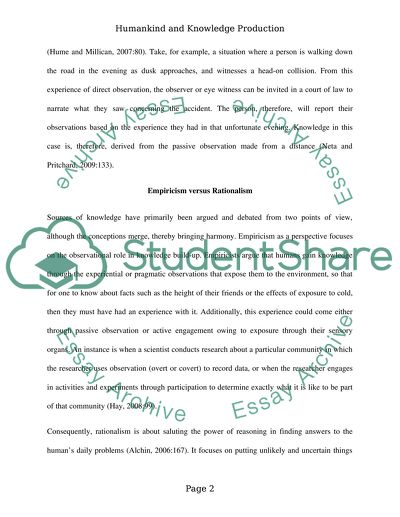Cite this document
(Two Ways in Which Humankind Can Produce Knowledge Coursework - 5, n.d.)
Two Ways in Which Humankind Can Produce Knowledge Coursework - 5. Retrieved from https://studentshare.org/education/1674048-there-are-only-two-ways-in-which-humankind-can-produce-knowledge-through-passive-observation-or-through-active-experiment-to-what-extent-do-you-agree-with-this-statement
Two Ways in Which Humankind Can Produce Knowledge Coursework - 5. Retrieved from https://studentshare.org/education/1674048-there-are-only-two-ways-in-which-humankind-can-produce-knowledge-through-passive-observation-or-through-active-experiment-to-what-extent-do-you-agree-with-this-statement
(Two Ways in Which Humankind Can Produce Knowledge Coursework - 5)
Two Ways in Which Humankind Can Produce Knowledge Coursework - 5. https://studentshare.org/education/1674048-there-are-only-two-ways-in-which-humankind-can-produce-knowledge-through-passive-observation-or-through-active-experiment-to-what-extent-do-you-agree-with-this-statement.
Two Ways in Which Humankind Can Produce Knowledge Coursework - 5. https://studentshare.org/education/1674048-there-are-only-two-ways-in-which-humankind-can-produce-knowledge-through-passive-observation-or-through-active-experiment-to-what-extent-do-you-agree-with-this-statement.
“Two Ways in Which Humankind Can Produce Knowledge Coursework - 5”, n.d. https://studentshare.org/education/1674048-there-are-only-two-ways-in-which-humankind-can-produce-knowledge-through-passive-observation-or-through-active-experiment-to-what-extent-do-you-agree-with-this-statement.


